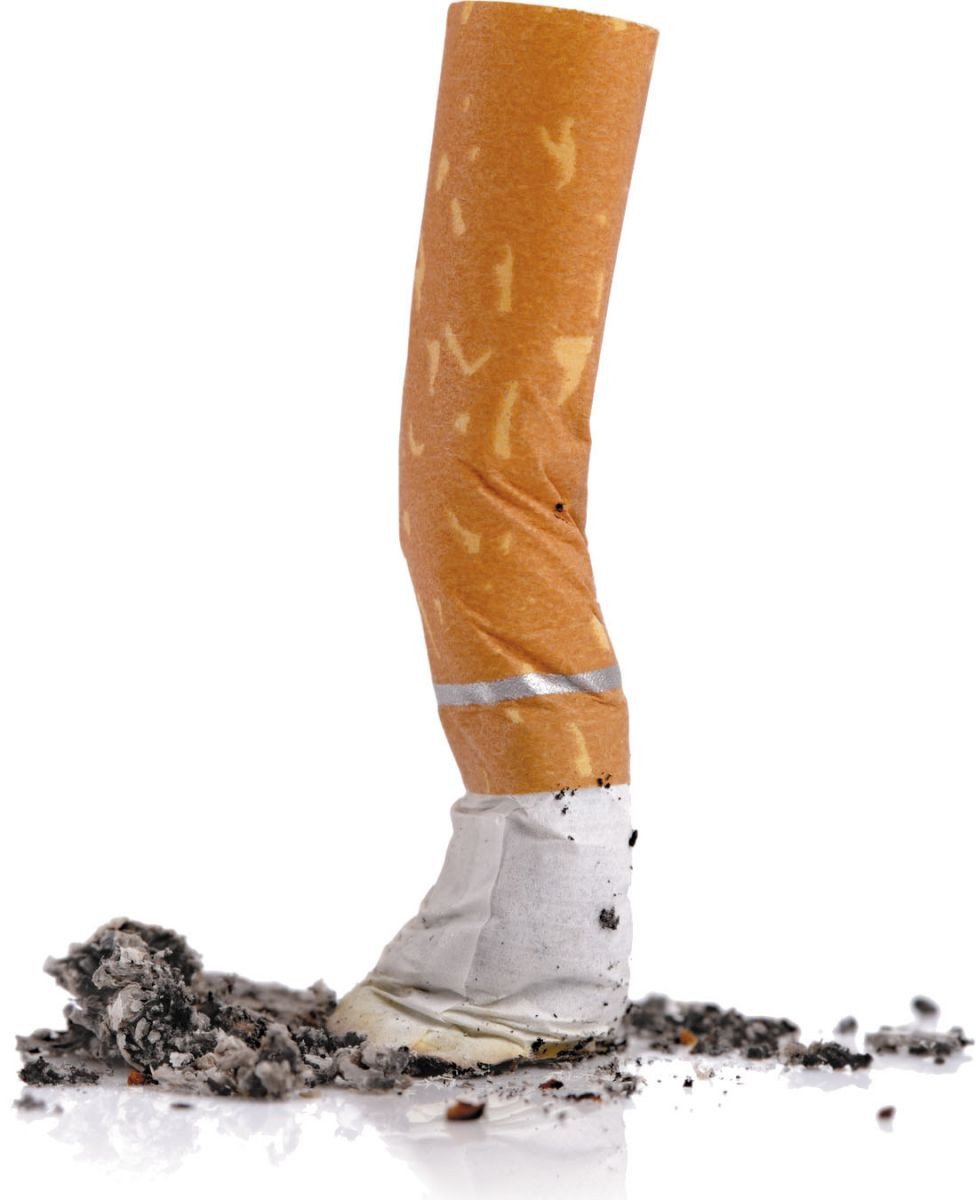
Driving with arthritis pain: Stay comfortable — and safe — behind the wheel

Daily cup of coffee may prevent afib recurrence

Gene-editing therapy lowers harmful blood fats in early study

What is EMDR therapy, and who can it help?

GLP-1 drugs versus bariatric surgery for treating obesity

Two dumbbells, three exercises, and 10 minutes

Easing the emotional burden of IBS

Modify your push-ups to meet your fitness level

What is long QT syndrome?

Stroke survivors may benefit from very low LDL levels
Stroke Archive
Articles
Eczema may signal higher risk of cardiovascular problems
Research we're watching
Image: © Tharakorn/Getty Images
About one in 10 people has eczema, a chronic inflammatory condition that leaves skin dry and itchy. People with more severe forms may experience a scaly rash or skin that cracks and oozes. These people may also be at greater risk for heart attack and stroke, according to a study in the May 23 issue of The BMJ.
For the study, researchers analyzed data from more than 385,000 adults with eczema, which was classified as mild, moderate, or severe. Each was matched with up to five people of similar age and sex who didn't have eczema.
Duration of atrial fibrillation and risk of stroke
Research we're watching
Episodes of atrial fibrillation (afib) — a chaotic, irregular heart rhythm — can last for minutes, hours, days, or much longer. The condition encourages blood clots to form in the heart; the clots can then escape and lead to a stroke. New research suggests that even intermittent bouts of afib (which were previously considered to be low risk) may increase a person's risk of stroke.
The study included nearly 2,000 people who wore a small skin patch that continuously monitored their heart rates for 14 days. All of them had paroxysmal (intermittent) afib and were not taking anti-clotting medications. Researchers then tracked the participants' incidence of stroke over the following five years. They found that afib that lasted more than 11% of the total monitoring time was associated with a threefold increase in stroke risk.
Eat an egg for breakfast, prevent a stroke?
Research we're watching
Image: © Twomeows_IS/Getty Images
Eating an egg a day may help protect against cardiovascular disease, according to a study published online May 21 by the journal Heart. Researchers found that people who ate an egg every day had an 18% lower risk of dying from cardiovascular disease and a 28% lower risk of experiencing a deadly hemorrhagic stroke, compared with people who didn't eat eggs.
The study included more than 400,000 adults ages 30 to 79. Participants were from 10 survey sites in China. Researchers looked at how often study subjects reported eating eggs and then tracked their health for nearly nine years using registries and other methods.
Is coffee harmful to my health?
Ask the doctors
Q. I recently read about the decision by the state of California to require cancer warnings on coffee. I drink a cup a day. Should I be concerned?
A. The recent decision by a California judge to require cancer warning labels on coffee stemmed from concerns about a specific substance found in coffee, acrylamide, which is a chemical that is produced when coffee is roasted. Coffee isn't the only food or beverage that contains acrylamide. Acrylamide is produced during the high-temperature cooking process used for numerous common foods, including cookies, crackers, and potato chips, according to the American Cancer Society (ACS). But before you panic, while there definitely is acrylamide in coffee, scientists have yet to conclusively prove that this chemical causes cancer, according to the ACS. Most of the research on humans hasn't found any increased risk of cancer in people who eat foods containing acrylamide. Other studies looking at specific types of cancers have produced mixed results but found no conclusive links, according to the ACS. In addition, there is evidence that drinking coffee can bring some health benefits, such as reductions in the risks for stroke and liver disease. A 2015 study in Circulation also found that moderate coffee drinkers (defined as those having less than five cups a day) had lower risks for heart disease and neurological disease, according to the American Heart Association. So, the final message is this: if you are healthy and drink coffee moderately, there is no evidence that it's going to raise your risk of developing cancer.
Even one cigarette a day is too many
Research we're watching
It seems the old adage "everything in moderation" might have an exception — smoking. A study in the January 24 issue of The BMJ found that smoking even one cigarette a day carries significant health consequences, namely a higher risk of heart attack and stroke.
Using data from 141 different studies, involving millions of participants, researchers compared people who smoked either one, five, or 20 cigarettes each day. They found, counter to what many people assume, that rates of heart disease and stroke were not reduced as much as expected in casual smokers compared with pack-a-day smokers.
How atrial fibrillation may affect your brain
This heart rhythm disorder is linked to thinking and memory problems. But anti-clotting drugs may lower the risk.
Bouts of atrial fibrillation, or afib — a rapid, chaotic heartbeat — make some people feel lightheaded and dizzy, while others don't notice any symptoms. But the most serious threat of this condition is the higher risk of stroke among people with afib compared with those without the disorder (see "Blood clot dangers, large and small"). Now, there's a growing recognition that people with afib also face an increased risk of thinking and memory problems — even if they do not experience a stroke.
Known as cognitive impairment, these problems include trouble remembering, learning new things, concentrating, or making routine decisions. The presumed underlying cause? Tiny blood clots that cause "silent" (that is, unrecognized) strokes and gradually injure parts of the brain involved with cognition.
Harnessing big data to help the heart
Machine learning may improve the way doctors detect heart disease.
Image: © exdez/Getty Images
Imagine a world in which a photo of your eye — taken with your smartphone — could determine your risk of a heart attack, and your smartwatch could estimate your odds of experiencing a stroke. Sounds pretty futuristic, right?
In fact, preliminary studies showing the feasibility of both approaches have already been published. They're just two examples of the new wave of technology-based innovations (see "Transformative technologies") that are beginning to change health care as we know it.
Traffic noise linked to higher heart disease risk
Research we're watching
Image: © u_/Getty Images
Roaring jets, rumbling trains, and revving automobiles may have a detrimental effect on your cardiovascular health.
According to a review article in the Feb. 13, 2018, Journal of the American College of Cardiology, many studies have observed a connection between transportation-related noise and a slightly higher risk of high blood pressure, coronary artery disease, stroke, and heart failure. The association persists even after adjustment for possible confounding factors, such as air pollution and socioeconomic status.
New guidelines extend your window for a first-line stroke treatment
News briefs
The American Stroke Association has made a major change to its recommendations for a first-line stroke therapy. The group's new guidelines, published online Jan. 24, 2018, by Stroke, say that instead of having just six hours from the onset of stroke symptoms to reach into a blood vessel, grab the clot, and pull it out, doctors now have up to 24 hours to perform the procedure (depending on the circumstances). The new recommendation will be helpful for people who suffer a stroke while sleeping and therefore don't know at what time the symptoms began. A thrombectomy may be combined with the other first-line treatment for stroke caused by a blood clot: a clot-busting drug called tissue plasminogen activator, or tPA. The treatment window to use tPA is just three to four hours, so it's imperative that you call 911 at the first sign of stroke symptoms. Those include the sudden onset of confusion, difficulty talking, weakness or numbness on one side of the body, or difficulty walking.
What a drag: The dangers of a daily cigarette
Research we're watching
Smoking just one cigarette a day appears to raise the risk of heart disease and stroke by between 48% and 74%, according to a study in the Jan. 24, 2018, issue of The BMJ.
Researchers pooled data from 141 studies done in 21 countries and regions, together involving millions of people. They analyzed the risks associated with smoking one, five, or 20 cigarettes per day, taking into account age, sex, and other possible confounding factors. Just one cigarette per day accounted for half of the risk seen with smoking 20 cigarettes a day in men, and for one-third of the risk in women, they discovered.

Driving with arthritis pain: Stay comfortable — and safe — behind the wheel

Daily cup of coffee may prevent afib recurrence

Gene-editing therapy lowers harmful blood fats in early study

What is EMDR therapy, and who can it help?

GLP-1 drugs versus bariatric surgery for treating obesity

Two dumbbells, three exercises, and 10 minutes

Easing the emotional burden of IBS

Modify your push-ups to meet your fitness level

What is long QT syndrome?

Stroke survivors may benefit from very low LDL levels
Free Healthbeat Signup
Get the latest in health news delivered to your inbox!
Sign Up










